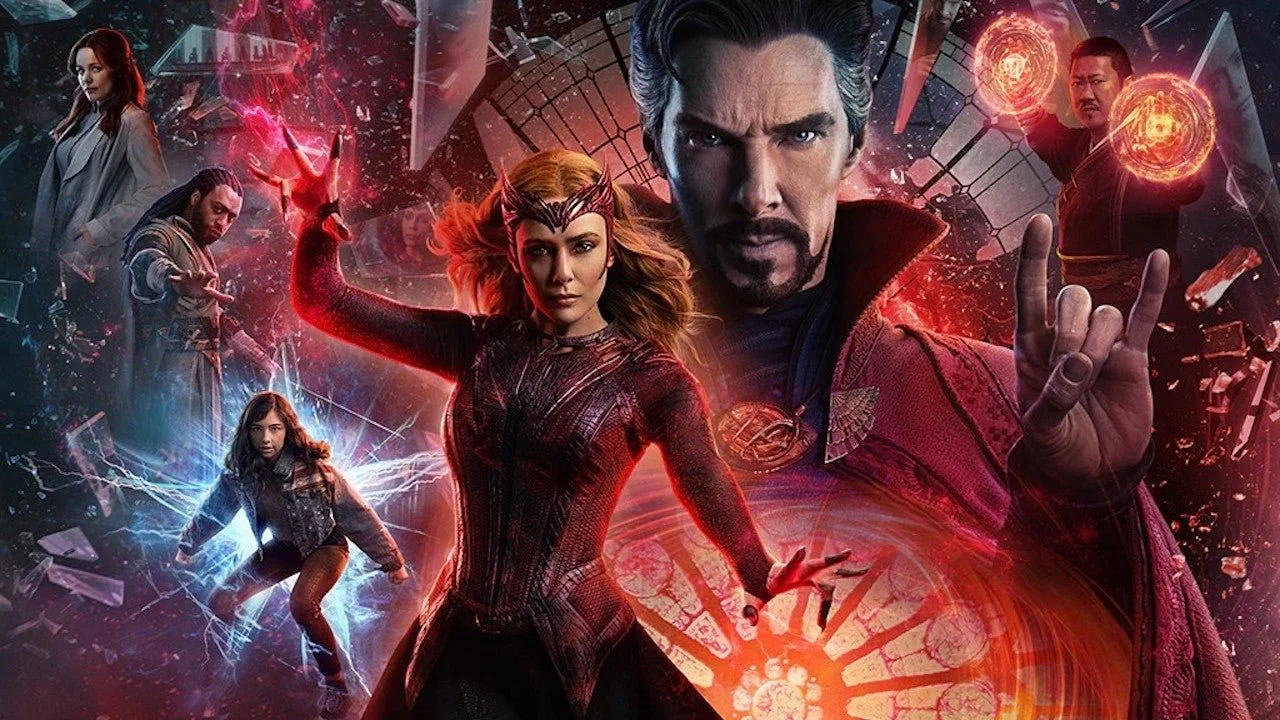Doctor Strange in the Multiverse of Madness (2022) Review
“Trust yourself. Trust your power.”
Sam Raimi changed the entire superhero filmscape with his Spider-Man trilogy two decades ago. And about another twenty years before that – he changed the entire cult horror scene with one of the most notorious splatter films of all time – The Evil Dead. So, safe to say, when Disney announced they were hiring Raimi to direct their latest product in the Marvel Machine – both skepticism and excitement were warranted. On one hand – Disney now had one of the most beloved cult American auteurs under their belt yet, on the other side, the MCU isn’t really known for giving directors creative freedom. Raimi is a director with such a distinct visual/narrative style; coming from his DIY horror roots evolving into something humanly unique within all the fantasy. Disney favors overarching narrative consistency over “directorial vision”; it’s been seen how repetitive and formulaic many of the titles have become as of late. Even 2016’s Doctor Strange felt like a retread of the eight years of the MCU beforehand. Though last year’s Eternals attempted to break the mold – Chloe Zhao’s directorial sensibilities still felt restrained in the bigger picture. And while Doctor Strange in the Multiverse of Madness faces a director, yet again, at odds with The Mouse – I’m happy to say this is one of the MCU’s most director-focused movies to date.
Though the film opens with an overloaded CGI mess of an intro – it quickly picks up as we find Strange (Cumberbatch) coping being an omniscient hero unable to relate to the plight of “normal” people; Spider-Man 2 much? And almost immediately after, the multiverse comes crashing down as a fully transformed Scarlet Witch (Olsen) is on multiversal manhunt to enslave the only person known to travel between universes – America Chavez (Xochitl Gomez). The decision to make Wanda completely transform into a full-blown villain here is a bold one and, as far as I recall, never has the MCU delved into pulling a full-180 on a hero’s ethical code. After the events of Wandavision, Wanda will now do anything to get her children back; even if it means destroying multiple universes in the process. Seeing her character take on such a dark and conflicting arc is a pleasure to see on-screen and she genuinely becomes one of the MCU’s strongest villains in the process. Sure, at times, the story feels like an overblown Rick & Morty plot (much like Loki) all which screenwriter Michael Waldron has spearheaded – yet his narrative style remains one of the MCU’s most unique voices. And thanks to Raimi’s direction – even some of the “standard” beats feel more exciting; all leading into a ballsy third act that is, by far, one of my favorites this franchise has to offer.
Within the first act – there’s an oblivious “push and pull” between that of Raimi’s directorial style and that of the MCU’s stoic presentation. As the film progresses – Raimi takes over; with the film delivering on some truly horrific and gory moments that have already sparked (some unwarranted) debate over the intensity of a PG-13 film. And even with a precariously crafted cameo sequence that bogs down the pacing of the entire film – Raimi manages to add enough flair to keep the show ramping up till the finale. There’s legitimately a battle between two Stranges that include ripping musical notes off sheet music to be used as weapons. For the man who made Evil Dead 2 (arguably the most “fun” movie of all time) – this is incredibly on brand and I, as a huge Sam Raimi fan, love to see it. The narrative here is also not one that requires a heavy understanding of the MCU; the stakes are self-contained enough where it, even while opening up the multiverse within the franchise, feels focused on the plot at hand. And because of that – actually allows the viewers to connect to the relationships between that of Strange, Chavez, and Maximoff. Gomez pulls off her character with a balanced sense of gumption and naivité; proving herself to be an exciting addition to the series. And though her backstory is an ugly CGI-overloaded expository sequence – it’s an origin that feels worthy of the scale Marvel has worked itself towards as of late.
Sam Raimi is also reunited with long-time collaborators – composer Danny Elfman and editor Bob Murawski. It’s this synergy between the trio that really allows the film to break The Mouse’s shackles (at times) and prove how this franchise can evolve for the future; focus on a singular vision rather than commercial scope. Whenever the film truly lets Raimi take the reins – it shines. And when it doesn’t – it falls extremely flat. And while the film revels in its multiversal antics and goofiness – it doesn’t fall into Disney’s forced “joke quota” trappings that end up hindering the quality of many of these films. Between Loki and Doctor Strange in the Multiverse of Madness – Disney has harnessed their greatest asset yet; Michael Waldron. And coupled with Raimi and his team – I haven’t left a Marvel film feeling this satisfied in a very long time and, though this may be short-lived, one can only hope for the best.
